William Shakespeare (1564~1616), a great British drama master, poet, and European literary master of the Renaissance. There are many works in the poet's life, including 37 plays, one volume of sonnets, and two long narrative poems. These include the famous "Romeo and Juliet", "The Merchant of Venice", "Macbeth", "Hamlet", "King Lear" and so on.

What is the secret of Shakespeare's handed down writing?
Love, family, power, war, these are the issues that Shakespeare discusses in his works. The reason why these plays can touch people's sensitive nerves is because they are simple and full of human nature, and they are handed down and immortal.
If you want to learn to write, why not learn from the best writers?
The book "Learning to Write from Shakespeare" will tell you how he did it. Follow these 10 classic drama works of Shakespeare, and decipher the handed down writing skills of drama masters for you.
▼
Build a deep inner world of the character
01
"Hamlet"
be yourself
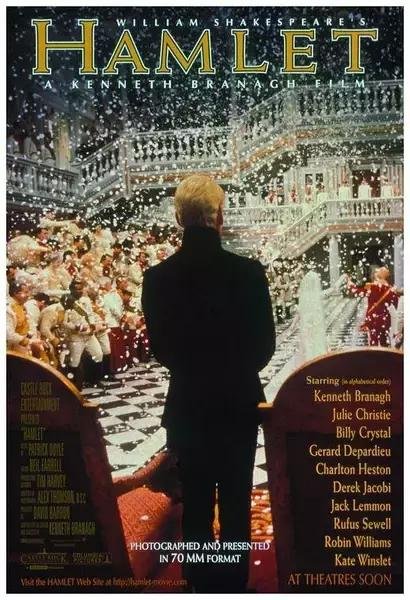
Among all the plays of Shakespeare, "Hamlet" is the one that has been performed, quoted and referenced the most. This play is not only performed thousands of times a year on stage, but since 1900, more than 50 films have been adapted from it. There is no doubt that "Hamlet" is the cornerstone of Western literature and culture. From actors to directors, from critics to readers, why does this work attract so many people? Why is it so important?
He is smart, introspective, angry, frustrated, happy, nostalgic, witty, and possibly crazy. His personality reflects a series of emotions like a scorpion. The audience was attracted by him, as if they were solving a puzzle.
The audience likes to see the characters suffer in inner conflicts. Audiences like to see characters make unexpected choices. These choices should make the audience surprised, angry, or curious.
Unexpected choices can attract audiences. The more curious the choices made by the characters, the more the audience will want to pay attention to the characters and see why they do it. In any case, these unexpected choices must conform to the character's character and reveal the most real and essential aspect of the character.
The character struggling due to inner conflict will make the audience sympathize, and at the same time, it can construct the complex inner world of the character.
To create inner conflicts and make your character face important choices, both positive and negative reasons should be equally strong.
The choice made by the character should make the audience feel surprised, angry, or curious.
Let the character struggle and grow as the story develops, which helps to build a complex inner world of the character.
▼
The climax is inevitable, but it is impossible to predict
02
"Romeo and Juliet"
Parting is such a sweet sadness

It is generally believed that "Romeo and Juliet" is the most tragic one in Shakespeare's play. A pair of lovers were separated due to family feuds. Such a heartbreaking story brings a unique appeal to this drama.
But try to think about it, if Romeo and Juliet survived, they grew old and often quarreled, would we still have the same evaluation of this drama? In the magnificent final scene of this drama, Romeo and Juliet both commit suicide. This is the core of the drama and the inevitable ending of the perfect love story.
Throughout the story, Shakespeare repeatedly mentioned death. This has a clear purpose: let the audience know what will happen. Even if the audience knows that Romeo and Juliet will eventually die, they will still hold a glimmer of hope and hope that they will not die. The tragedy of the story is that the audience is so close to hope, but the hope is eventually shattered.
Prophecy (previously narrate the plot) and foreshadowing (a clue of what is about to happen) are important means to pave the way for the climax.
Using prophecies and foreshadowing to pave the way is the key to writing a reasonable ending.
Prophecy and foreshadowing will not destroy the unexpected effect of the ending, but will play a strengthening role.
A satisfying transition can prevent the ending from falling into expectation.
▼
Why do we love obsessed characters?
03
"Macbeth"
Go, damn blood!
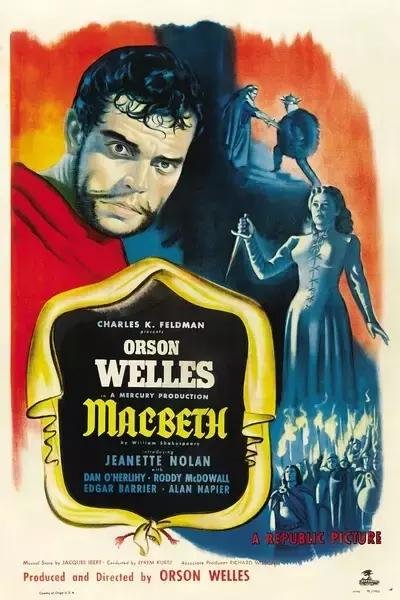
Among the female characters written by Shakespeare, the most attractive is Mrs. Macbeth. Although the play was named after her husband Macbeth, it was her unyielding ambition that forced them to conspire to kill the king of Scotland and seize the monarchy. She promoted the development of the plot, from several murders to cover-ups for it. Lady Macbeth is the frenetic core of this bloody drama, that is, the essence of the persistence that can swallow everything.
The audience loves the enchanted character. They are brave, purposeful, persevering, and very interesting. Their eager energy firmly attracted the people around them, including the audience.
Enchanted characters must show their uniqueness. We want to see their strong desires and be shocked by them. The audience likes to see the characters who are enchanted, and they also like to watch these characters go crazy and twists and turns.
When the characters appear on the stage, they must show that they are willing to do whatever they want for what they want.
Let the character's boldness in a strong desire shock the audience.
The audience likes to see ambitious characters flying into the air, but they also like to see them finally destroyed by obsessive obsession.
▼
The power of personal tragedy
04
"Othello"
These words cut my wounded heart like a razor
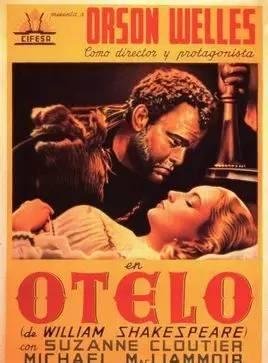
Shakespeare’s tragedies are generally set in important historical periods. "Hamlet" tells the death of a king, "Macbeth" tells the murder of a Scottish monarch, and "King Lear" tells the decline of a dynasty.
This work tells the story of a man who killed his beloved wife. To a large extent, this is a short story. But this play is considered one of Shakespeare's greatest tragedies. This drama reveals the true core of tragedy: emotion.
The best tragic works do not necessarily involve major political stakes, but immerse the characters in pain. Only when they are in pain, we will empathize. The work of tragedy reminds us to pay attention to the pain around us, because tragedy will show its most powerful force only when it is directly related.
The real tragedy comes from the damage caused to the character's emotions.
It is the personal stake that resonates with the audience, not the grand story frame. The deeper we understand the relationship between characters, the stronger our feelings will be when the relationship is threatened.
We must not only understand the relationship between the characters, but also see the moment when this relationship really breaks down.
▼
Want to create a classic play?
Then destroy a family!
05
"King Lear"
Extraordinary relatives, irrelevant passers-by

For dramas with a family background, the opening segment must reveal the root causes of family conflicts and pave the way for every conflict. Every drama with a family background must start from the root.
Every classic drama with a family background has a catharsis at the end. The character may or may not be forgiven, but emotional catharsis is certain. Set a moment for the character to end the story so that both the character and the audience can see what happened in the story.
Most of the classic drama works take love and family as the eternal themes, because they are of great significance to the audience. These works make us feel joy and pain, and let us get the ending that many people have been pursuing all their lives.
The opening segment must reveal the root causes of family conflicts and pave the way for every conflict.
After the middle of the story, set a "turning point that cannot be repeated", that is, a major change or reversal in the relationship between family characters.
At the end of the story, be sure to provide an opportunity for the characters and the audience to express their emotions. Make sure that in the catharsis stage, the emotions pouring out bring both the character and the audience to the end of the story.
▼
A good comedy must have at least one accident or coincidence.
Or an ironic twist
06
"A Midsummer Night's Dream"
by coincidence
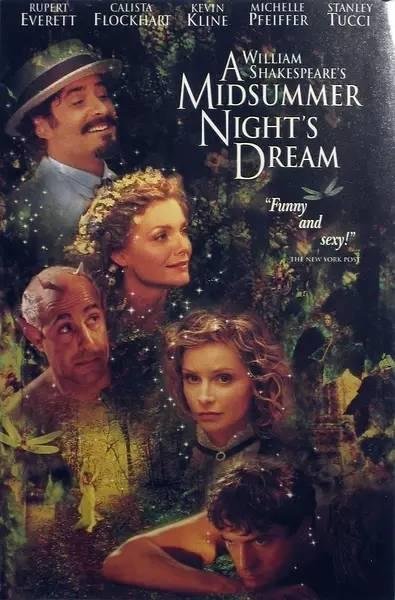
"A Midsummer Night's Dream" is a series of absurd collections of accidents, coincidences and ironic transitions. Unlike other classic works of Shakespeare, "A Midsummer Night's Dream" is completely divorced from reality. But the accident in the story is very different. They promote the development of the plot and limit the direction of the story.
Every good comedy has an ironic twist. Whether it is for the character or the audience, the irony turns give deeper meaning to the events in the story and provide lessons. Like accidents and coincidences, the irony turns must be integrated into the plot and become an indispensable part of the story.
Accidents must promote the development of the plot and limit the direction of the story.
The real joy of reading a story is not in the accident itself, but in seeing how the accident affects all the people and things in the story, the so-called "chain reaction."
A subtle coincidence can remind the audience that life is unpredictable-it can be good or bad.
Cheating is only giving simple answers to questions, while subtle coincidences can promote the development of the plot.
Whether it is for the character or the audience, the satirical turn gives deeper meaning to the events in the story, and provides lessons at the end of the story.
Like accidents and coincidences, the satirical turn must be integrated into the plot and become an indispensable part.
▼
No one wants to see the story of a happy lover
07
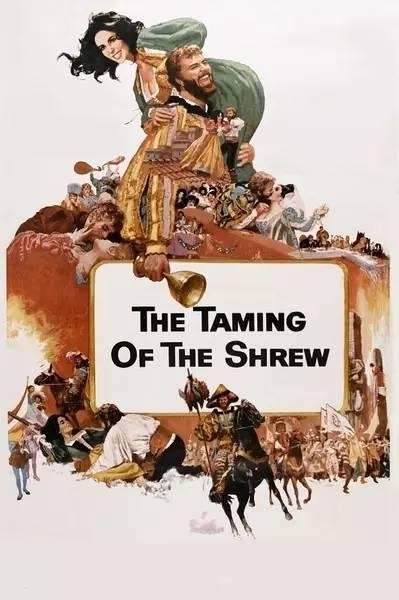
"The Taming of the Shrew" is not the traditional love story that most people imagine. This drama is about a long-standing struggle: the struggle between genders. This struggle continues to this day, and it is likely to continue forever. This theme takes advantage of our most basic needs for sex and power, and these are also two of the favorite themes of Hollywood movies. If you want to stage a gender fight, you must start with a conflict derived from personality. Giving a character a completely different point of view can create contradictions, which is the main factor in the spark of love.
Playing together is an essential step in establishing a romantic relationship between characters. Regardless of the process, the ending of the love story must show the audience the key determination, which is what they expect. The task of the screenwriter is to first make the audience have such romantic expectations, and then use the most suitable way to meet their expectations.
Giving a character a completely different point of view can create contradictions, which is the main factor in the spark of love.
A love story requires fun and a game process for the love between two people to develop well.
Without this process, the audience cannot believe that they truly love each other.
Make sure your love story expresses determination to meet the audience’s expectations, whether it’s a hope, a kiss, or a promise.
▼
Only those heroes with shortcomings deserve attention
08
"Henry V"
Some people are forced to accept great titles

Among the works of Shakespeare, the most prominent portrayal of heroes is "Henry V." Every hero needs to have shortcomings. The audience watched as the hero was tortured under the burden of his shortcomings, and he could see himself in it. Equally important, the shortcomings make the story more dramatic. Because of its shortcomings, this role needs to prove itself. At the climax of the plot, the hero overcomes his own shortcomings, and the audience cheers for it, not only because they see themselves in the hero, but also because of the hero's hard work.
Injury to the protagonist in the pen-whether physically or psychologically-makes them at a disadvantage in the competition and face even more daunting challenges. Before becoming true heroes, they must try to make the wound heal.
Heroes with flaws are more likely to gain sympathy from the audience and are more likely to be recognized by the audience.
The characters have shortcomings that need to be overcome, which will make the story more dramatic.
Let the hero in the pen suffer psychological trauma or have an unbearable past, which gives you the opportunity to show the growth and change of the character at the end of the story.
Finally, the hero must overcome his own shortcomings and get out of the shadow of trauma and unbearable past.
▼
Don't just say it, do it for me
09
"Richard III"
Action is Eloquence

When it comes to Shakespeare, people first think of monologues, poems, and gorgeous rhetoric. But in fact, Shakespeare's plays contain a lot of action content. Starting wars, executing kings, raping women, digging the roots of the tongue, killing babies, etc. These stories are savage, terrifying, and full of action content. Few works have more action content than "Richard III". This reminds us of the first rule of writing: don't just say it, do it for me. Every writer knows this rule, but applying it to script writing is more difficult than imagined.
Every character has what they want. This is the "goal". At a certain stage in the script, each character must show their goals. But this is not to let the characters tell us, but to show us with bold actions. One of the biggest temptations that writers face is to increase the action in the scene rather than the action. "Action" refers to keeping the character busy.
At the end of each story, the audience hopes to see the climax. A good orgasm is wonderful, exciting, and most importantly, the scene is lively. This is not to say that every good climax must have swords and shadows and bloody winds, but in a suitable way, letting your characters fight each other will make the climax of the story become tense in the dramatic conflict. The final scene of "Richard III" is a model of an exciting climax. This once again proves the first principle of writing: don't just say it, do it for me.
Don't let the characters tell the audience directly what their goals are, but show them through bold actions.
Add action to the scene, not action.
"Action" refers to keeping the character busy; "True action" is necessary to ensure that the plot is complete, and to express your character in a unique and interesting way.
A good orgasm is wonderful, exciting, and most importantly, the scene is lively. At the climax of the plot, the audience does not need to hear too much dialogue while seeing the action, action is enough.
▼
The more suffering the character goes through, the better
10
"The Merchant of Venice"
If you stabbed us with a sword, wouldn't we also bleed?

Scholars who study Shakespeare believe that "The Merchant of Venice" is a "problematic drama." The problem is that although Sherlock is strictly speaking the villain in the play, he is also a very sympathetic character.
Let the audience have sympathy for both good and bad, "The Merchant of Venice" is such a classic work, the method used is to make every character suffer. Suffering humanizes the characters and at the same time deepens the audience's sense of identification with them. This sense of identity is particularly powerful when the audience has sympathy not only for the hero character, but also for the villain character. "The Merchant of Venice" gradually attracted the audience in the process of using suffering, allowing them to substitute in the story, laying layers of complex emotions. In other words, this is exactly the "problem" in your story.
Use the pain of the character to make the audience feel compassionate towards him.
Suffering humanizes the characters and at the same time deepens the audience's sense of identification with them.
Good stories make the audience sympathize not only with heroes, but also with villains.
Let your characters face pain, difficult choices and tribulations, and complete the final climax of liquidation